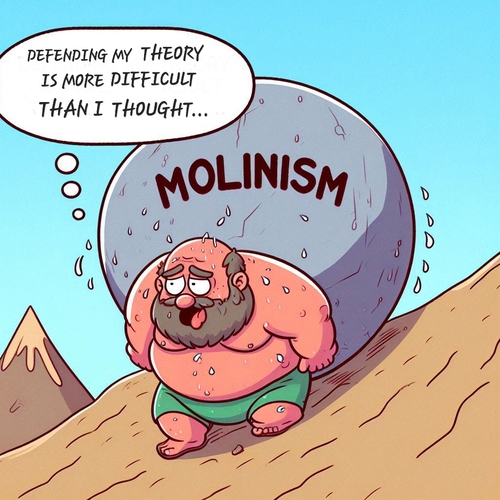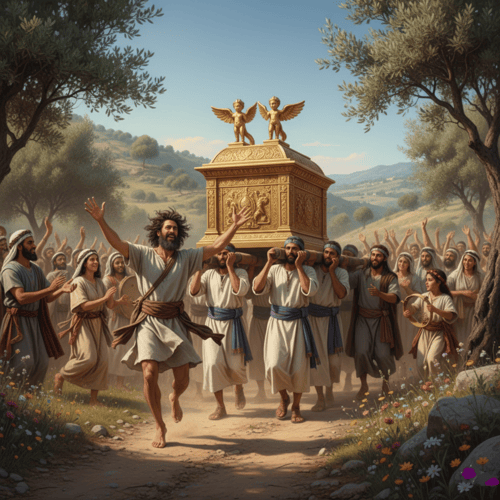Celibacy Or Castration: What Jesus Really Means in Matthew 19:12
One of Scripture’s most shocking misinterpretations led theologian Origen to castrate himself in the third century. His tragic mistake? Taking Jesus’ words in Matthew 19:12 literally when Christ spoke of those “who have made themselves eunuchs for the kingdom of heaven.” This catastrophic error has echoed through church history, creating confusion about one of Jesus’ most profound teachings on calling and commitment.
The truth is clear when we apply sound Reformed hermeneutical principles: Jesus is teaching about voluntary celibacy for kingdom service, not advocating self-mutilation. Let’s examine what Scripture actually says.
CONTEXT DETERMINES MEANING
Matthew 19:12 cannot be understood apart from its context. Jesus has just delivered His uncompromising teaching on marriage permanence (vv. 3-9), declaring divorce is only permissible for sexual immorality. His disciples, shocked by this high standard, respond with evident dismay: “If such is the case of a man with his wife, it is better not to marry” (v. 10).
This provides the key to understanding verse 12. Jesus isn’t introducing a random teaching about castration—He’s addressing His disciples’ suggestion that singleness might be preferable to marriage given its permanent nature. His measured response acknowledges not everyone can “receive this saying” about remaining single, then introduces three categories of those who don’t marry.
Following the Reformed principle that Scripture interprets Scripture, we recognise context shapes meaning. The flow of argument moves logically: marriage → divorce → celibacy as an alternative calling.
THREE CATEGORIES EXPLAINED
Jesus identifies three types of “eunuchs”—those unable to marry or procreate:
- “Eunuchs who were born that way from their mother’s womb” describes those with natural physical conditions preventing marriage or procreation. This is simply factual description, not moral evaluation.
- “Eunuchs who were made eunuchs by men” refers to those who suffered involuntary castration—often court officials or servants in ancient cultures. Again, this describes a condition imposed by others.
- “Eunuchs who have made themselves eunuchs for the kingdom of heaven’s sake” provides the interpretive key. The Greek phrase “eunuchised themselves” indicates a chosen lifestyle of celibacy, not literal self-castration.
This third category represents voluntary singleness for kingdom purposes—what Paul would later elaborate in 1 Corinthians 7:7-8. Here he describes his own unmarried state as a gift enabling undistracted service to God. Paul explains the unmarried person “cares for the things of the Lord—how he may please the Lord” (1 Cor. 7:32), perfectly capturing Jesus’ meaning.
WHY DO WE RULE OUT LITERAL CASTRATION?
Scripture provides overwhelming evidence against the literal interpretation:
- Scripture consistently condemns self-harm. The Old Testament restricted castrated men from certain ceremonial roles (Lev. 21:20, Deut. 23:1). This hardly suggests God desires such mutilation. Paul teaches that our bodies are temples of the Holy Spirit (1 Cor. 6:19-20), to be stewarded as God’s creation, not destroyed. Reformed doctrine has always emphasized that our physical bodies, being God’s handiwork, must be cared for rather than mutilated.
- Jesus uses metaphorical “cutting off” language elsewhere. In Matthew 5:29-30, Christ speaks of cutting off hands and plucking out eyes to avoid sin—language universally understood as metaphorical. Applying consistent hermeneutical principles, we recognize that the same speaker uses the same literary device here. If we took Jesus literally every time He spoke of cutting off body parts, Christianity would be a religion of amputees.
- The grammar supports metaphor. The phrase “made themselves eunuchs” describes choosing a celibate lifestyle rather than performing surgery. When examined through the Reformed grammatical-historical method, the original language confirms this interpretation.
THE REFORMED UNDERSTANDING
Reformed theology, anchored in the sola Scriptura principle, interprets difficult passages through clearer ones. First Corinthians 7 provides the theological framework for understanding Matthew 19:12. Paul presents both marriage and singleness as divine callings, with celibacy being a spiritual gift enabling focused kingdom service.
Key Reformed themes emerge: celibacy represents a spiritual gift, not a universal calling; both marriage and singleness serve God’s kingdom purposes; and Christians enjoy freedom from human traditions that would compel either state. The Westminster Confession’s implications are clear—marriage remains honourable while celibacy offers an alternative calling for those so gifted.
Jesus’ concluding words prove decisive: “He who is able to receive this, let him receive it.” This is invitation, not command—a recognition that God grants different gifts to different people for His glory.
PRACTICAL APPLICATIONS
This interpretation honours both biblical marriage and biblical singleness. It rejects both mandatory celibacy and marriage idolatry, recognizing that God calls people to serve Him faithfully in various states. Reformed pastoral theology emphasises helping believers discern their particular calling rather than imposing uniform expectations.
The church must provide pastoral care for single believers while avoiding extremes—neither despising marriage as less spiritual nor compelling it as universally necessary.
CONCLUSION: WHAT JESUS MEANS IN MATTHEW 19:12
Jesus’ wisdom in Matthew 19:12 affirms marriage’s permanence while honouring kingdom-focused singleness. His teaching demonstrates gospel freedom from both legalism and license, providing space for various callings within God’s design. Rather than promoting self-mutilation, Christ commends those who, gifted by God, choose celibacy for more effective kingdom service.
The Reformed tradition’s careful exegesis reveals Jesus’ balanced approach: marriage serves God’s purposes, and so does Spirit-enabled singleness. Both represent valid responses to God’s calling, and both deserve the church’s honour and support.
WHAT JESUS MEANS IN MATTHEW 19:12: RELATED FAQs
What did early Reformed scholars say about Matthew 19:12? Calvin strongly rejected the literal castration interpretation, writing that Christ “recommends celibacy only to those who are endued with a special gift.” He emphasised this passage teaches about voluntary abstinence from marriage, not self-mutilation. Calvin warned against Rome’s mandatory clerical celibacy, arguing Jesus presents singleness as a divine gift, rather than as a universal requirement.
- Why does Jesus use such shocking language if He doesn’t mean literal castration? Jesus employs deliberately provocative imagery to emphasise the radical nature of kingdom commitment. Just as He used extreme metaphors about cutting off hands and plucking out eyes (Matt. 5:29-30), Christ uses startling language to capture attention and highlight the serious dedication required. This rhetorical technique forces listeners to grapple with the profound implications of choosing celibacy for kingdom service.
- How do we reconcile this with Old Testament restrictions on eunuchs (Deuteronomy 23:1)? The Old Testament ceremonial restrictions on physically castrated men actually support the metaphorical interpretation of Matthew 19:12. Jesus cannot be advocating literal castration when such individuals were excluded from the assembly. Instead, Christ transcends these ceremonial barriers by speaking of spiritual dedication that doesn’t involve physical mutilation, pointing toward the New Covenant’s fuller inclusion.
What about the Ethiopian eunuch in Acts 8—does this support literal interpretation? The Ethiopian eunuch was likely castrated as a court official, fitting Jesus’ second category of “eunuchs made by men.” Significantly, Philip readily baptises him, showing physical condition doesn’t disqualify anyone from the gospel. This actually reinforces that Jesus’ third category—voluntary celibacy—involves spiritual commitment, not physical alteration, since the gospel welcomes all regardless of their bodily state.
- How do the leading commentators today interpret this passage? RC Sproul, John MacArthur, and DA Carson unanimously reject the castration interpretation. They emphasise Jesus addresses the disciples’ concern about marriage difficulty by acknowledging celibacy as a legitimate calling for some. Reformed commentaries consistently interpret “making oneself a eunuch” as choosing singleness for more effective ministry, supported by Paul’s teaching in 1 Corinthians 7.
- Does this passage support the Roman Catholic requirement of priestly celibacy? Reformed theology firmly rejects using Matthew 19:12 to mandate clerical celibacy, as this violates Jesus’ clear statement that only those “able to receive this” should embrace singleness. The Westminster Confession explicitly affirms that marriage is honourable for all, including ministers. Jesus presents celibacy as a spiritual gift for some, not an institutional requirement for church leadership.
How should churches practically apply this teaching today? Churches should honour both biblical marriage and biblical singleness as valid callings, avoiding the extremes of marriage idolatry or singleness mandates. Pastors should help individuals discern their gifts rather than imposing uniform expectations. Single believers deserve full inclusion and ministry opportunities, recognising that their undivided focus can uniquely serve kingdom purposes when guided by genuine spiritual calling rather than societal pressure.
WHAT JESUS MEANS IN MATTHEW 19:12: OUR RELATED POSTS
Editor's Pick

Did Joseph Sin in Marrying an Egyptian?
It’s a troubling question: if God forbade His people from foreign alliances, why was Joseph’s marriage to an Egyptian not [...]

Jacob’s Ladder: How Jesus Bridges Earth and Heaven
THE GOSPEL IN GENESIS 28... A stairway to heaven—humanity has always dreamt of one since the Fall. Every religion offers [...]

In the World But Not Of It: What John 17:14-16 Really Means
Scrolling through social media, we’re bombarded by voices shouting for our allegiance—politics, trends, ideologies. As Christians, we feel the tension: [...]

Is Molinism Biblical? Reformed Challenges to Middle Knowledge
In a world craving autonomy, does God truly reign supreme, or does He negotiate with human choices? The question lies [...]

Does the Bible Teach Purgatory? Scripture’s Clear Answer
Imagine standing at the very edge of eternity, wondering if the soul requires further cleansing before you enter heaven's gates. [...]

David Danced Before the Lord—Why Don’t Reformed Churches?
When we read about King David leaping and dancing before the Lord “with all his might” (2 Samuel 6:14), a [...]

Faithful to the Pattern: Why Paul Reserves Ordination for Men
Few topics in contemporary Christianity generate more tension than women’s ordination. This question touches real lives, genuine callings, and deeply [...]

‘Flee Sexual Sin’: Why Does Paul Single This Sin Out?
When the apostle Paul writes to the Corinthian church, he doesn’t tell them to simply avoid sexual immorality or resist [...]

Does Denying God’s Sovereignty Mean Denying the Gospel?
RC Sproul once warned denying God’s sovereignty “eviscerates” grace—a strong word meaning to gut or disembowel something, leaving only an [...]

Why Christians Fast: The Biblical Discipline’s Very Real Rewards
Why would Christians, who rejoice in the good gifts of food and fellowship, deliberately choose to go without? Isn’t fasting [...]
SUPPORT US:
Feel the Holy Spirit's gentle nudge to partner with us?
Donate Online:
Account Name: TRUTHS TO DIE FOR FOUNDATION
Account Number: 10243565459
Bank IFSC: IDFB0043391
Bank Name: IDFC FIRST BANK






